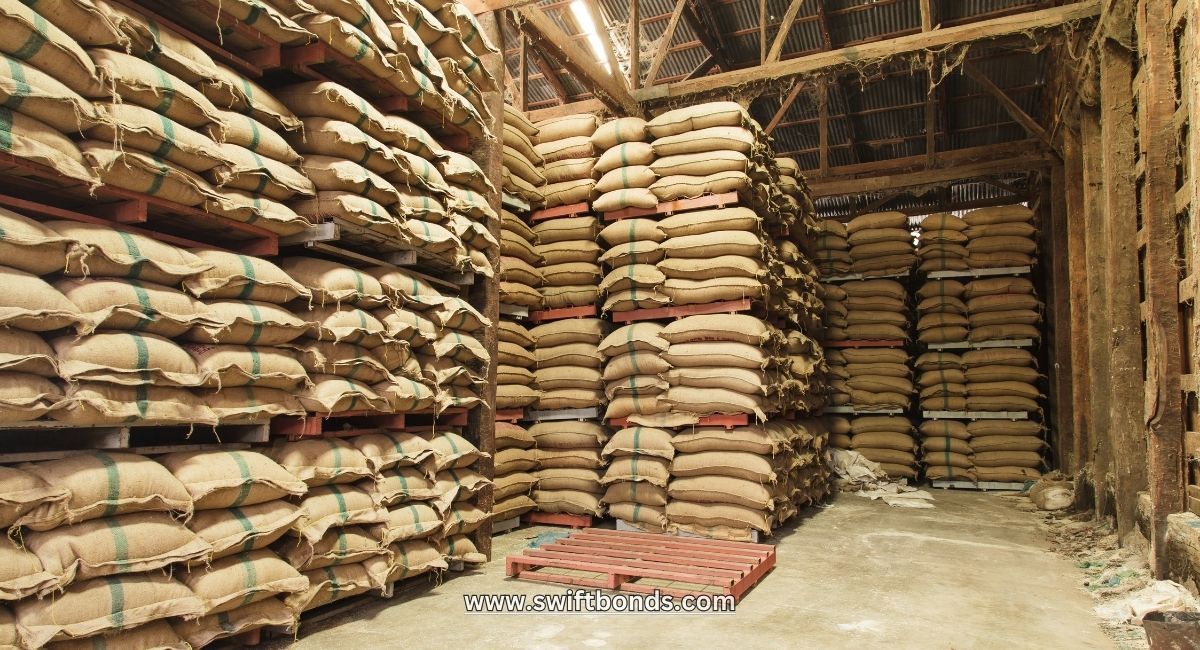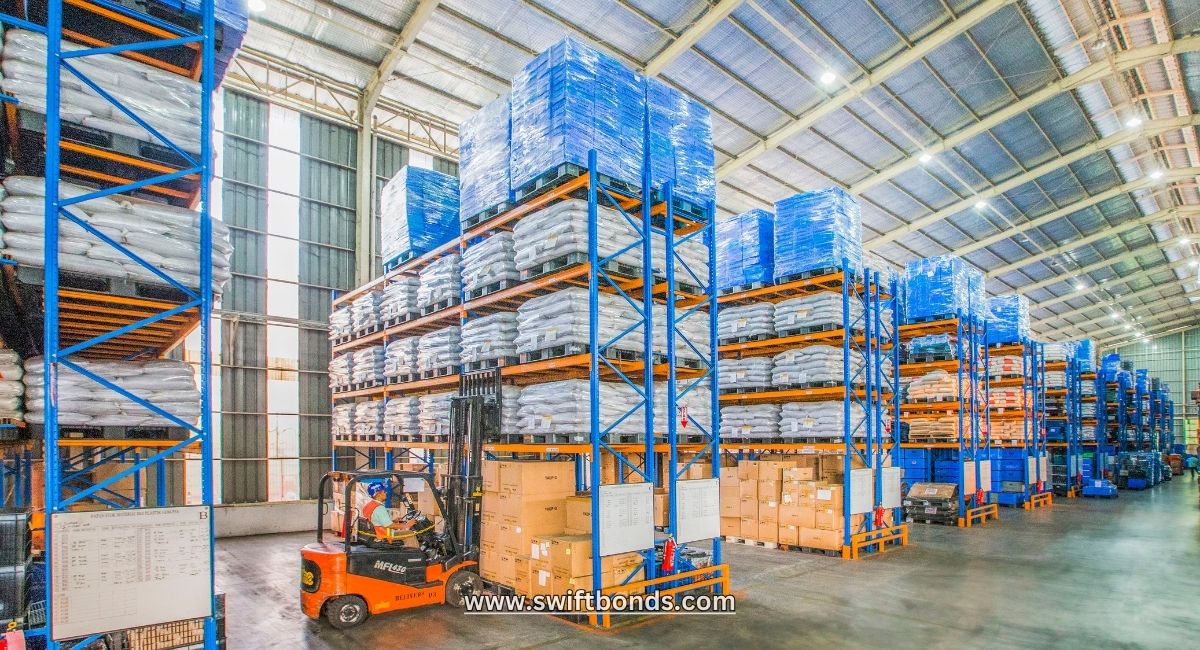Get an Instant Quote on Commodity Warehouse Bond
Introduction
From our perspective, agricultural warehouse operators in Havre, Montana, want to build lasting relationships with producers and maintain integrity in the storage of commodities. Whether it’s wheat, barley, or another valuable crop, the producers who entrust warehouses with their goods deserve assurance that those products will be protected—and returned or paid for when the time comes. That’s where the Montana – Commodity Warehouse Bond comes into play.
This bond is a requirement set by the Montana Department of Agriculture for anyone operating a licensed public warehouse. It guarantees that the warehouse will fulfill all obligations, including safely storing commodities, accounting for inventories, and compensating producers in the event of loss or mishandling. In short, this bond is a financial safeguard that holds warehouse operators accountable.
Unlike the Montana – Commodity Dealer Bond, which focuses on guaranteeing payments to sellers, the warehouse bond applies to those entrusted with physically housing commodities. It’s also distinct from the Montana – Commodity Dealer and Commodity Warehouse Bond, a combined option some operators may need if they handle both storage and purchasing functions. For warehouses specifically, this bond is a legal requirement and a professional necessity.

Montana Warehouse Operators Often Misunderstand Their Bonding Obligations
We’ve noticed that warehouse owners often confuse licensing requirements, especially when it comes to the distinction between dealer and warehouse activities. Some assume that if they hold a Montana – Commodity Dealer Bond, that’s all they need. But that bond only applies to purchasing and resale transactions. It doesn’t cover the risks involved in storing another party’s grain or seed.
There’s also confusion around bond amounts. The bond value isn’t arbitrary—it’s based on the volume of commodities stored and the value of those products. Failing to calculate the correct bond amount can result in state rejection of the license, fines, or even suspension of warehouse operations. Moreover, some operators mistakenly rely on insurance alone, believing it covers the same ground. It doesn’t. A surety bond is a separate requirement, filed with and for the benefit of the state and commodity depositors.
Those offering both buying and storage services often need the combined Montana – Commodity Dealer and Commodity Warehouse Bond. Without understanding these details, businesses risk operating out of compliance and exposing themselves to liability.
Swiftbonds Supports Warehouse Operators With Fast, Compliant Bonding
Based on our experience, warehouse operators in Montana benefit from clear, fast, and legally compliant bonding solutions. That’s where Swiftbonds becomes a dependable ally. Whether you’re renewing your license or setting up a new warehouse, we help you meet all bonding obligations under Montana law.
Swiftbonds provides:
-
Instant access to state-approved warehouse bond forms
-
Bonds tailored to storage capacity and regulatory thresholds
-
Easy upgrades for businesses transitioning to a Montana – Commodity Dealer and Commodity Warehouse Bond
-
Clear instructions on filing and renewals
-
Ongoing compliance support with bond tracking and automated reminders
We’ve worked with operators across Montana who first obtained a Montana – Commodity Dealer Bond, only to realize later they needed a warehouse bond to remain compliant. With Swiftbonds, making that adjustment is seamless and fast—keeping your facility open and trusted.

3 Steps To Secure Your Montana Commodity Warehouse Bond
What we’ve discovered is that warehouse operators who follow a straightforward process experience fewer delays, smoother licensing, and better relationships with state regulators. Here’s how to secure your Montana – Commodity Warehouse Bond:
- Calculate Your Storage Capacity And Product Value – Visit the Montana Department of Agriculture and review warehouse licensing guidelines. Determine how much you store and the peak market value of stored goods. This will help determine your bond amount.
- Choose The Correct Bond Type – Decide whether you need a stand-alone warehouse bond or the combined Montana – Commodity Dealer and Commodity Warehouse Bond. If you buy and store commodities, the combined bond may be required.
- Apply Online With Swiftbonds – Complete the application through Swiftbonds. We’ll calculate your rate, issue the bond, and provide state-approved documents ready for filing—often within the same business day.
This process is different from securing an oil well bond, such as the Montana Board of Oil and Gas Conservation Bond – Individual Well Bond – Form 3, which focuses on site reclamation. The warehouse bond’s goal is to protect Montana’s agricultural producers by guaranteeing the safekeeping of their harvests.
Noncompliance With Warehouse Bonding Can Create Risk
In our observation, the biggest risk for Montana warehouse operators is unintentionally operating without the proper bond. This usually happens when an operator changes business models—adding storage to a dealer operation—and forgets to upgrade their bond. That gap can lead to immediate license suspension and financial penalties.
Bonding missteps don’t just affect regulatory status—they damage producer trust. A depositor who doesn’t feel protected may pull business, file a complaint, or seek legal recourse. In cases of loss or mismanagement, the absence of a valid bond can expose the operator to lawsuits or force the Department of Agriculture to step in and manage compensation.
Even operators who comply early on can run into problems by letting bonds lapse or failing to adjust coverage when storage volumes increase. Those who also carry a Montana – Commodity Dealer Bond must remain mindful of their total business activity and how it impacts bonding requirements.

Bonded Operators Build Better Producer Relationships In Montana
We’ve learned that warehouse operators who take bonding seriously enjoy stronger business relationships, smoother state audits, and a better reputation in Montana’s agricultural communities. Bonding communicates preparedness, reliability, and legal compliance—all traits that producers look for when choosing where to store their commodities.
When combined with a Montana – Commodity Dealer and Commodity Warehouse Bond, operators gain broader credibility by showing they are both financially and operationally sound. Swiftbonds helps warehouse managers meet every requirement with confidence, whether they’re storing grains in Havre or running a statewide grain operation.
Being bonded is not just about regulation—it’s about trust. And trust grows into long-term business when your clients know their goods are safe.
Montana Construction Law And Performance Bond Compliance
Although the Montana – Commodity Warehouse Bond is regulated by the Montana Department of Agriculture under Title 80, Chapter 4 of the Montana Code Annotated, those in other sectors—particularly construction—should be aware of additional bonding requirements. For public works, the Montana Little Miller Act (Montana Code Annotated § 18-2-201) mandates performance and payment bonds on contracts exceeding $50,000.
Operators who also engage in oil and gas projects must comply with the Montana Board of Oil and Gas Conservation Bond – Individual Well Bond – Form 3, as detailed in Montana Administrative Rules Title 36, Chapter 22.
Every bond in Montana serves a different regulatory purpose, and the combined Montana – Commodity Dealer and Commodity Warehouse Bond reflects the need to meet multiple obligations when a business spans both storage and trade. Full compliance requires understanding each statute and ensuring the correct bond is filed with the proper agency.

Conclusion
We’ve come to appreciate that the Montana – Commodity Warehouse Bond is not just a formality—it’s a foundation for doing honest, regulated, and safe business in Montana’s agricultural industry. This bond protects producers, secures storage operations, and builds business integrity. When done right, it opens doors to long-term growth and professional trust.
Swiftbonds helps warehouse operators in Havre and across the state file, renew, and manage their warehouse bonds efficiently. Whether you’re upgrading from a Montana – Commodity Dealer Bond or seeking coverage under the Montana – Commodity Dealer and Commodity Warehouse Bond, our process is built for speed, compliance, and peace of mind.
Frequently Asked Questions
What does the Montana Commodity Warehouse Bond protect against?
We’ve often noticed operators aren’t clear on coverage. This bond protects producers from loss if the warehouse fails to return or compensate for stored commodities. It guarantees compliance with the terms of the storage agreement.
Is this bond the same as a dealer bond in Montana?
We’ve often noticed confusion between the two. No. The Montana – Commodity Dealer Bond protects payments owed to sellers. The Montana – Commodity Warehouse Bond covers stored goods. They serve different functions.
How is the bond amount determined?
We’ve often noticed uncertainty around this. The Montana Department of Agriculture sets the bond amount based on the volume and value of commodities stored. It must reflect peak storage capacity and risk exposure.
Can I combine my dealer and warehouse bonding into one?
We’ve often noticed this question from dual operators. Yes. If your business includes both buying and storing commodities, you may qualify for the Montana – Commodity Dealer and Commodity Warehouse Bond, which covers both obligations under one bond.
Do I need to renew this bond each year?
We’ve often noticed confusion about renewal. Yes. The bond must remain current as long as the warehouse is licensed and operating. Failure to renew may result in license suspension or revocation.


